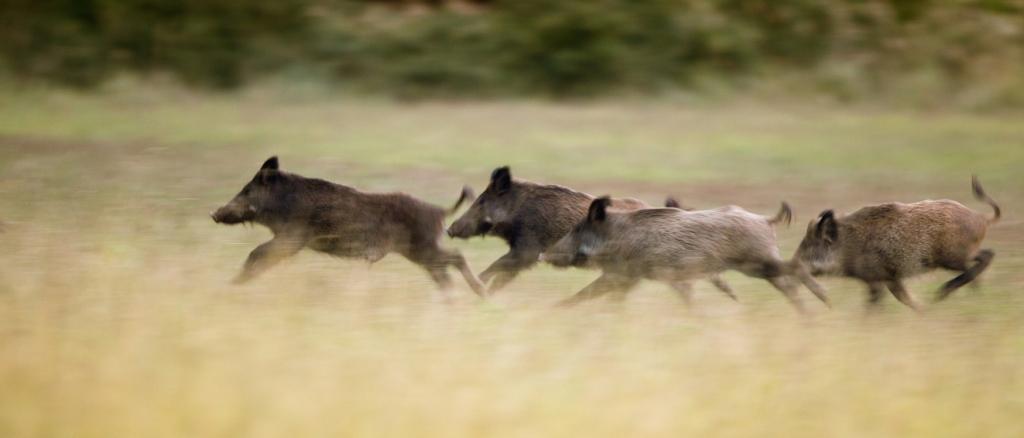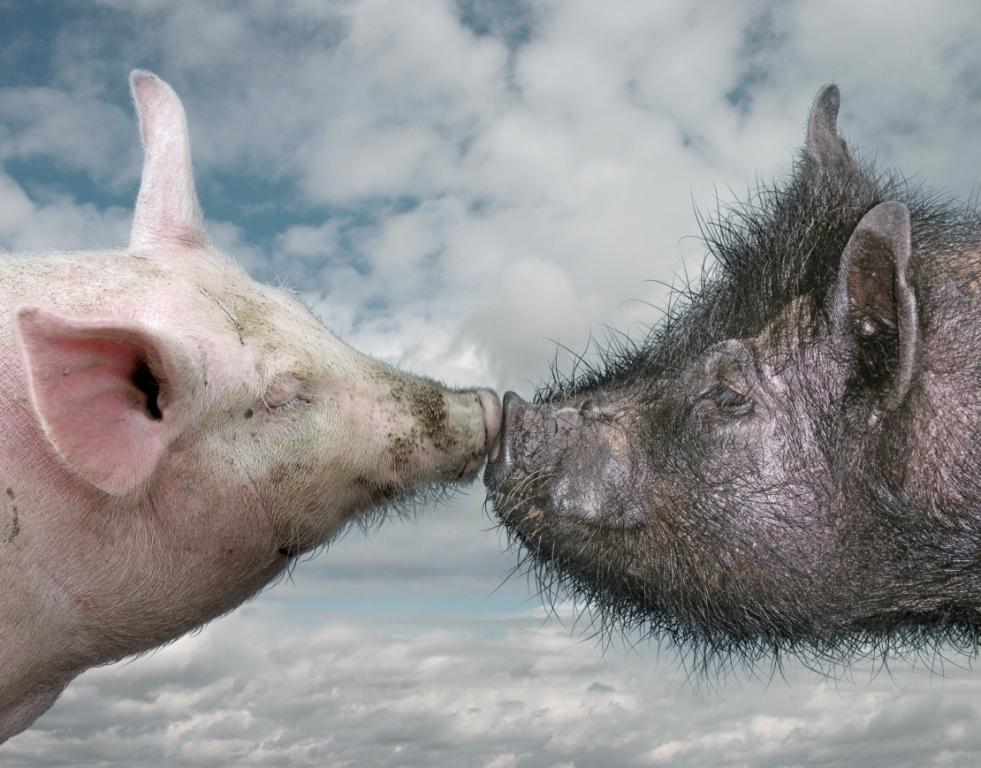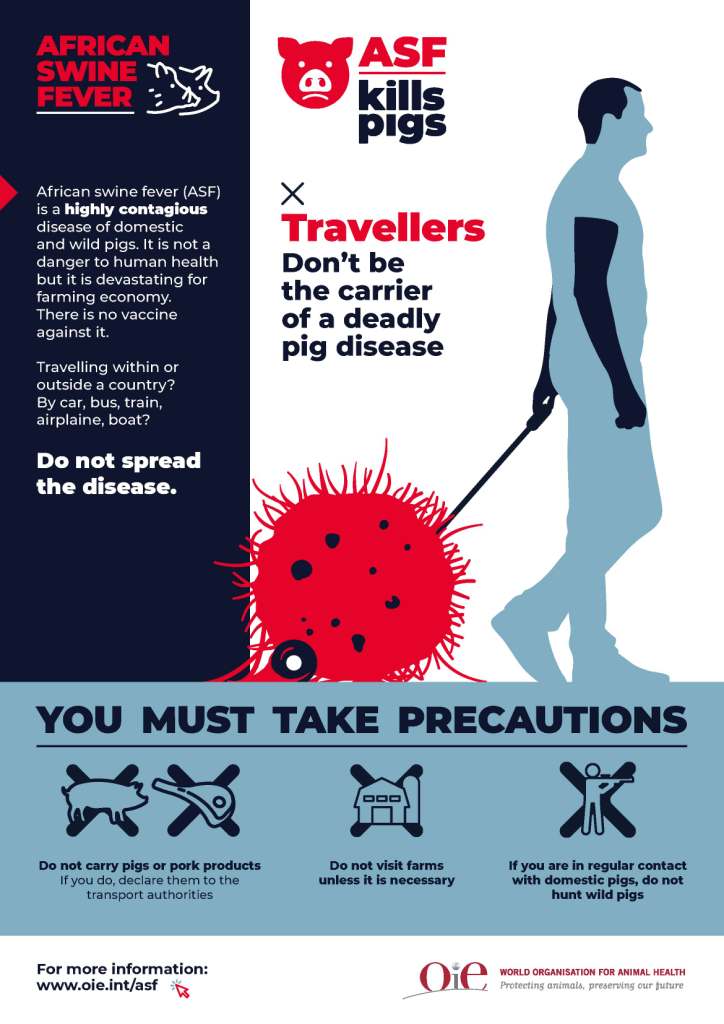
African swine fever (ASF) is a deadly pig disease that affects domestic and wild pigs. It is not a risk to human health, but affects animal welfare, causes severe production and economic losses and can threaten food security worldwide. The number of countries or territories affected by ASF has increased in recent years, with notifications from countries in Sub-Saharan Africa, Europe and Asia.
In the absence of an effective vaccine against ASF virus, prevention in countries free of the disease depends on strict implementation of our standards, including epidemiological surveillance, animal identification and traceability, biosecurity measures on farms and during movement of pigs or pork products, and stringent import policies. This ensures that neither infected live pigs nor pork products are introduced into areas free of ASF, including ensuring proper disposal of waste food from aircraft, ships or vehicles coming from infected countries or zones.
Recognising the current heightened global risk to all countries, and the significant impact of the disease on animal health and welfare, food security, national and global economies, rural development and social and political behavior, an appeal was made at the 87th General Session of the World Assembly of Delegates of the World Organisation for Animal Health (WOAH, founded as OIE) for a global initiative to control ASF.
The resolution No. 33, adopted during this session, recognised the complexity of ASF, requiring a multi-sectoral and multi-institutional cooperation. It also noted the long-standing collaboration between FAO and the WOAH in supporting their membership in the management of animal health related risks. The Resolution identified key roles to be played by countries, the FAO and the WOAH in the global control of ASF.
This included the need for ASF to be considered as a disease that requires adequate risk management by development and refinement of national control programmes, and the need to recognise risk communication as a crucial component to effectively address risk pathways and high-risk practices. Countries were also encouraged to maintain transparency through timely disease notification and to manage risks by implementing the international standards, in relation to zoning, compartmentalisation and applying commodity-based trade measures.
The FAO/WOAH Global Framework for the Progressive Control of Transboundary Animal Diseases (GF-TADs) was identified by the Resolution as the appropriate platform to develop and promote national, regional and global partnerships, to strengthen prevention and preparedness measures, and to minimise the adverse impacts of ASF on the health and welfare of pigs and international trade. The GF-TADs initiative for the global control of ASF aims to tackle the strategic challenges to effectively address the mandate given to the WOAH and FAO by defining the objectives and providing the structure for specific outputs and outcomes to be achieved for the global control of the disease.
In the beginning of 2020, the World Organisation for Animal Health launched the second phase of its awareness campaign focusing on the role of travelers as carriers of ASF and how they can avoid spreading it.
The aim of this awareness campaign is to ensure that all the actors involved in the dissemination of the disease are aware of and take necessary precautions to avoid it.
Discover all the tools available in several languages here.
The ASF virus is highly resistant in the environment and pork products, meaning that it can survive in clothes, boots, wheels, and other materials, and cross borders if adequate measures are not taken.
Thus, the transmission from country to country can be facilitated by travelers if they carry infected pigs or contaminated pork products and do not declare them to the transport authorities.


